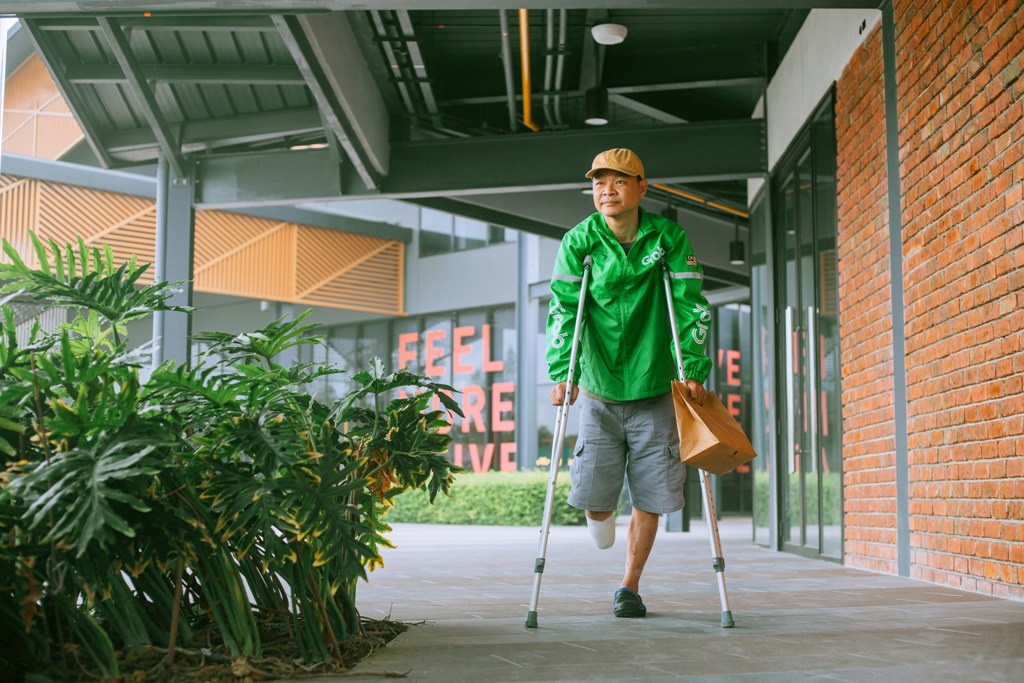The Ministry of Social and Family Development (MSF), on Monday, September 16, unveiled new initiatives and recommendations under the Enabling Masterplan 2030 (EMP2030) at the Enabling Academy Learning Festival (EALF) 2024 to advance Singapore’s vision of an inclusive and caring society. The new recommendations, if implemented, are expected to place an additional 4,500 persons with disabilities into employment by 2030.

These initiatives and recommendations for Persons with Disabilities (PwDs), ranging from low to high needs and their caregivers, aim to strengthen support for lifelong learning in a fast-changing economy; bolster inclusive employment opportunities; and enable PwDs to live and participate actively in the community.
Under EMP2030, two Taskforces i.e. Taskforce on Promoting Inclusive Employment Practices (TIE) and Taskforce on Community Living for Persons with Disabilities (TCL) were set up in 2022 to develop alternative employment models to bolster inclusive employment and new community living models for PwDs.
Following extensive consultations with employers, persons with disabilities, caregivers, job coaches and social service agencies (SSAs), the Taskforces had released their recommendations. The Taskforces comprised members from the community, private and public sectors as well as individuals.
Eric Chua, Senior Parliamentary Secretary for Social and Family Development and Culture, Community, and Youth, Guest-of-Honour at EALF said, “We have made progress under the EMP2030. Since Aug 2022, we had launched the Enabling Business Hub, the Enabling Services Hub, and improved affordability of transport services, assistive technology and disability programmes. More can be done, however, to support persons with disabilities who are 18 years and older.
Two specific areas we can do so are in advancing the participation of persons with disabilities in employment as well as in providing more living options within the community. MSF supports the key recommendations proposed by the two Taskforces, as they support our efforts in building an even more caring and inclusive Singapore. As we work towards 2030, we will continue to do more, particularly in the post-18 space, and we need more in society to come onboard this collective journey of disability-inclusion. Ultimately, we want to make it possible for people of all abilities to participate fully in society, and to reach their fullest potential in life.
– Eric Chua.
Strengthen support for lifelong learning through the launch of Enabling Skills and Competencies Framework (ESCF)
The ESCF, launched by SG Enable’s Enabling Academy, the disability learning hub, sets out the skills and competencies for PwDs for independent living and employment, and for their network of support, viz. caregivers, employers, and disability sector professionals.
With a common skills language, the ESCF empowers PwDs in skills development and lifelong learning, guides application of skills in the workplace and community, and design of relevant training programmes. Developed in partnership and consultation with persons with disabilities, caregivers, employers, disability sector professionals, training partners, and social service agencies, the ESCF references the Ministry of Education’s Special Education (SPED) Teaching and Learning Syllabus to provide continuity in lifelong learning, as well as SkillsFuture Singapore’s Skills Frameworks for information on in-demand skills, employment and career pathways in the various sectors.
Bolster inclusive employment opportunities
Various initiatives such as the Open Door Programme, Enabling Employment Credit and Enabling Mark have been introduced over the years to encourage and support employers in inclusive hiring, and to place persons with disabilities into employment. The resident employment rate of persons with disabilities aged 15 to 64 has increased steadily from 28.2% in 2018/2019 to 32.7 percent in 2022/2023.
To achieve the aspirational target of 40 percent employment rate for persons with disabilities by 2030, the TIE recommended to grow and develop capabilities of inclusive employers, expand employment opportunities for persons with disabilities, and uplift the capabilities of job coaches.
Collectively, these initiatives are expected to place an additional 4,500 persons with disabilities into employment by 2030, contributing significantly to the EMP2030 employment target.
The TIE recommended enhancing support to:
- Build up employers’ in-house capabilities to implement inclusive hiring practices, such as by defraying part of the costs to do so and expanding the pool of inclusive hiring champions to advocate for inclusive hiring practices in target sectors such as Information & Communications, Health & Social Services, and Transport & Storage.
- Provide bridging efforts to curate and place job seekers in short-term assignments, or gig jobs. This will help to expand the number of job opportunities and improve access and support for job seekers with disabilities to return to the workforce.
- Introduce a clear set of competencies to uplift the capabilities and professional standards of job coaches, who play an important role in supporting PwDs. In response, SG Enable has launched the Job Coach Career Map, as part of the ESCF, which outlines the skills and competencies as well as career progression pathways of job coaches.
Enable persons with disabilities to live and participate actively in the community
The TCL recommended reviewing and enhancing the continuum of services to equip PwDs with the functional skills to participate in and exercise greater independence at home and in the community. Today, PwDs with higher support need to enrol in a Sheltered Workshop, Day Activity Centre, or the Home-Based Intervention Service pilot. Transitions across services are limited, even as PwDs’ needs change over the course of their lives.

Such a model will focus on working with caregivers to help PwDs acquire skills in a systematic way and reinforce skills learnt within the home setting. For PwDs with higher behavioural needs, it will also better support home-based interventions to transit them into the centres when ready.
Currently, most persons with disabilities are living in the community with a small proportion in adult disability homes. Based on feedback gathered, many caregivers have expressed uncertainty about the longer-term living arrangements of their adult children with disabilities, and their preference for them to live in the community if they can.
A key recommendation by the TCL is the piloting of the Enabled Living Programme (ELP). It provides a suite of support services (e.g. supervision and coaching in self-management, home management and community engagement) for PwDs with low to moderate support needs, so that they can continue living independently within the community. MSF and SG Enable will work with relevant agencies and disability SSAs to design and implement the ELP pilot serving up to 250 persons with disabilities from 2025 to 2028.
Another recommendation is to establish a sector-level person- and family-centred planning framework to support persons with disabilities and their caregivers in identifying and updating their goals and plans, and activating support from the family, community and services in a timely manner. MSF and SG Enable will partner disability sector professionals to develop the person- and family-centred planning framework and its enablers, drawing upon best practices from transition planning in SPED schools and care planning protocols across adult disability services.


